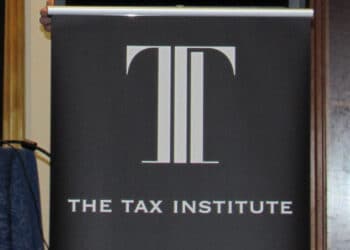Pensioners will now be exempt from Labor’s plans to end cash refunds for excess dividend imputation credits, as will SMSFs with at least one pensioner or allowance recipient before 28 March this year.
In effect, the policy has the potential to hit those who are working towards a self-sufficient retirement, thereby reducing pressure on the age pension.
“In the future, there will be no protection for SMSF retirees who may need part government support to supplement their superannuation income, creating an unfair, two-tiered and complex treatment of SMSF members who access the age pension in retirement,” said chief executive of the SMSF Association, John Maroney.
“Potentially, these SMSF members are worse off than people with less savings but refundable franking credits and a part pension. The end result is to reduce people’s incentive to save for retirement to achieve self-sufficiency,” he added.
In line with comments from SMSF Adviser readers, Mr Maroney noted high-balance SMSFs have already had their access to tax concessions readjusted through the advent of the transfer balance cap limit on tax-free earnings in retirement.
“The transfer balance cap is limiting excess franking credits that would have been paid to SMSF members with large balances. Under the new transfer balance cap rules, SMSF members with more than $1.6 million will be paying tax on some of their earnings that will offset the value of their franking credits, limiting their refunds,” Mr Maroney said.
Representative bodies in accounting and financial services have largely slammed the policy as one that works against encouraging Australians to be self-funded in retirement.
Chief executive at the Institute of Public Accountants, Andrew Conway, pointed to the contradiction of disincentivising taxpayers who do not put pressure on the pension system.
“Self-retirees or prospective self-retirees who seek to invest to secure a self-funded retirement plan; alleviating pressure on a government-funded pension system, should be incentivised, not penalised,” Mr Conway said when the policy was originally released in mid-March.
“Australia should be looking at every avenue possible to reduce long-term reliance on government-funded pensions,” he said.
“Considering the ageing population factor in Australia, future governments will simply not be able to fund peoples’ retirements,” he added.
katarina.taurian@momentummedia.com.au



Are we really saying that a member of an SMSF, where the member’s account has more than $1.6 million, is disadvantaged? Excess income is taxed at 15%, pension income is tax free in the member’s hands making Oz a tax haven for people over 60. And we are still complaining! The concession card is income tested with a pretty high level so where is the great disadvantage to us poor SMSF members. I am 71. Have we sunk to that NIMBY level? And always remember that, when one person receives a franking credit refund, in cold hard cash, someone has to pay more to make up the difference.
It seems they really want money to leave Australia, sadly. Then they will be whingeing about foreign ownership. Ad hoc mucking around is not a substitute for coherent policy.
What annoys me most if everything the government does seems to complicate matters for SMSF’s – we should be going in the other direction! E.G given $1.6 cap is in play now why can’t we abolish the work test? Actuarials are a mathematical equation that the major software providers run automatically – why can’t we be exempt from getting them if we use an accredited software (SuperMate, Class, BGL) for example, why can’t the government just state it is OK to run two funds or not – give us some clarity for crying out loud!